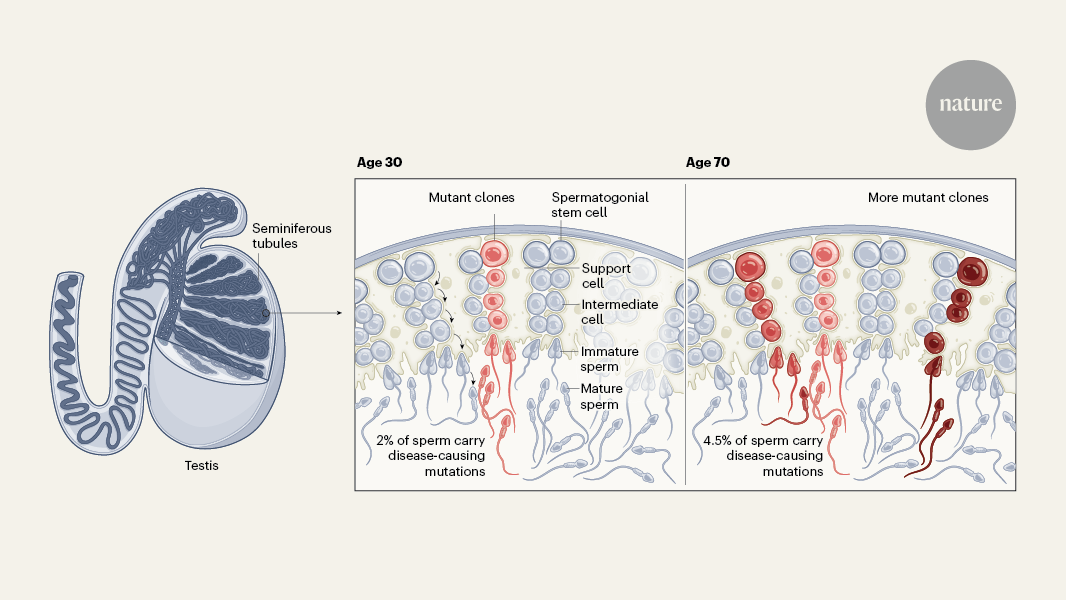The search for mutations that sperm acquire as men age

AI Summary
Two studies published in Nature reveal that age-related mutations in spermatogonial stem cells, which produce sperm, can give these cells a selective advantage and increase their lineage expansion. These mutations can be passed on to offspring, influencing disease risk and genetic variation in future generations. The research highlights the unique role of germline stem cells as the only replicating adult cells capable of transmitting acquired mutations to children. This finding underscores how male age can impact genetic health across generations.
Key Topics & Entities
Keywords
Sentiment Analysis
Source Transparency
This article was automatically classified using rule-based analysis. The political bias score ranges from -1 (far left) to +1 (far right).
Topic Connections
Explore how the topics in this article connect to other news stories